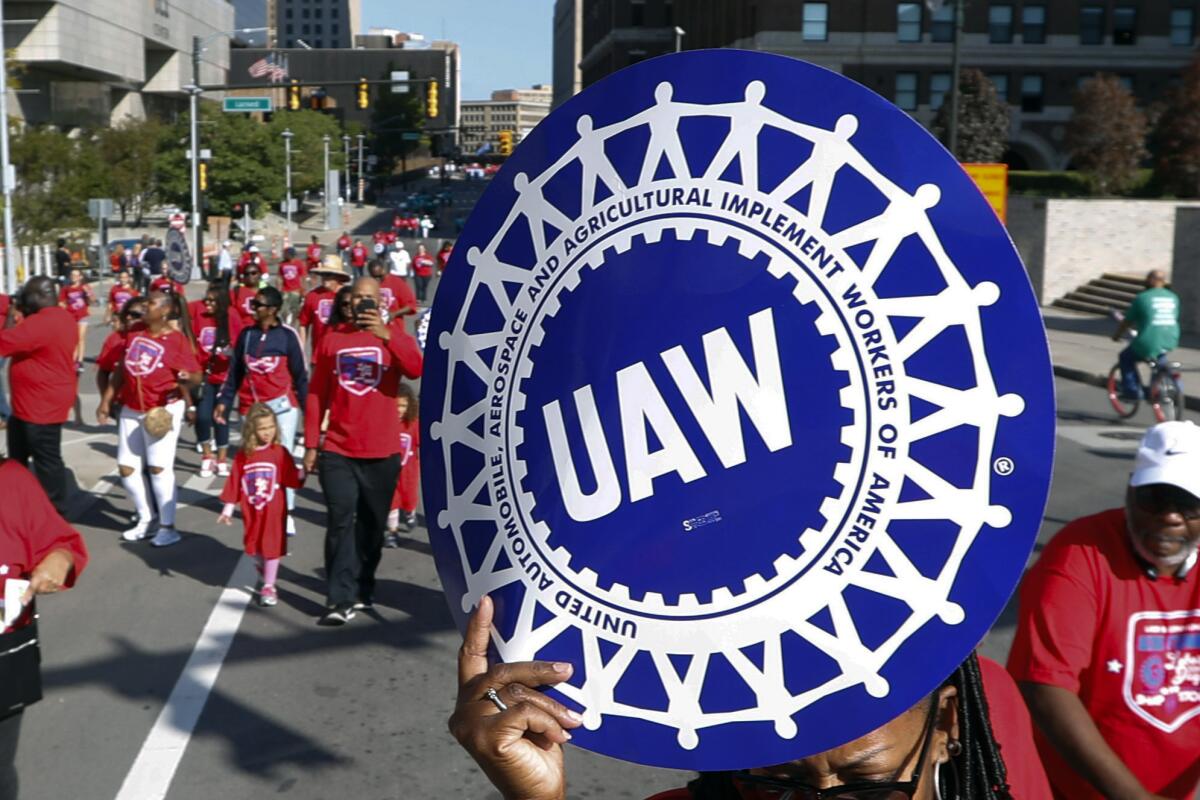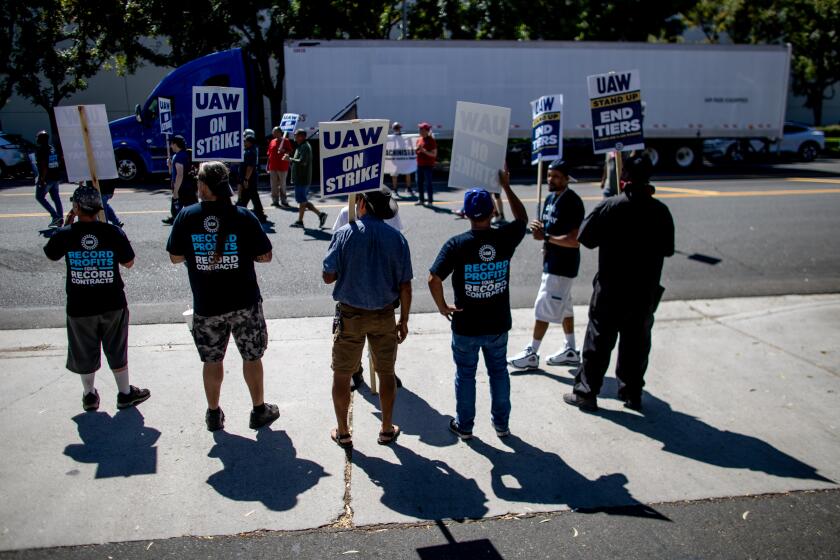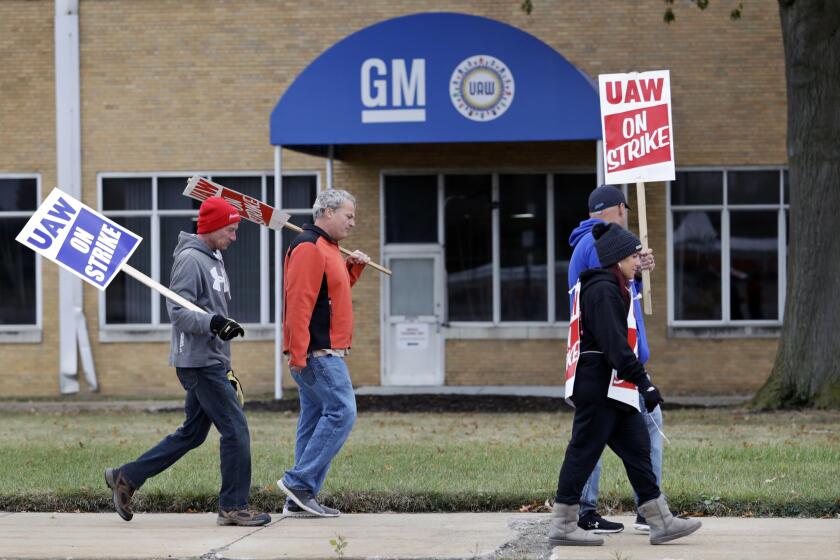UAW to launch unionizing drive at 13 carmakers, including Tesla and Toyota

- Share via
The United Auto Workers union is launching simultaneous, public organizing campaigns at more than a dozen automakers including Toyota Motor Corp., Volkswagen and Tesla, an audacious effort to capitalize on recent contract victories and reverse labor’s decades-long decline in the sector.
The UAW is aiming to organize nearly 150,000 employees at 13 companies, which would double the number of autoworkers in the union. The targeted automakers include foreign firms such as BMW and Nissan Motor Co., as well as electric-vehicle makers such as Rivian Automotive and Lucid Group.
The union is unveiling a website Wednesday on which workers can sign union cards online and get in touch with organizers. The UAW has already signed up thousands of workers across the targeted companies, a spokesperson said.
“To all the autoworkers out there working without the benefits of a union: Now it’s your turn,” UAW President Shawn Fain says in a video on the site, which also includes statistics on targeted automakers’ rising profits, executive compensation and vehicle prices. “You don’t have to worry about how you’re going to pay your rent or feed your family while the company makes billions. A better life is out there.”
Fain said the union has seen overwhelming response from nonunion workers across the U.S. in recent months, particularly in the South.
The UAW has gotten President Biden’s support as it aims to build on its deal with Detroit’s Big Three automakers by organizing workers at Tesla and Toyota.
Buoyed by new leadership and strategy, the UAW mounted closely watched strikes this fall that secured historic concessions from Ford Motor Co., General Motors Co. and Stellantis, including a restoration of cost-of-living allowances and a 25% wage increase that together will bring their top pay rate up 33% by 2028. Since those agreements were reached, nonunion competitors including Toyota, Nissan and Honda Motor Co. have announced they would hike pay for their own U.S. workers.
The UAW cited a campaign at a Toyota assembly complex in Georgetown, Ky., as one of its strongest efforts so far.
“They can give you a raise today and jack up your health benefits tomorrow,” Jeff Allen, a 29 year-employee at the plant, said in an emailed statement from the union. “A union contract is the only way to win what’s fair.”
Under U.S. law, if the majority of employees at a workplace sign union cards, the company can either voluntarily recognize the union or instead insist on a government-supervised unionization election. Such campaigns can be contentious and arduous, and companies often deploy tactics such as mandatory meetings aimed at persuading workers not to unionize. Retaliating against workers for trying to unionize is illegal, but employers are frequently accused of doing so anyway and face no punitive damages if they are found by the government to have broken the law.
The UAW represents fewer than a third as many employees as it did in the 1970s. While it has swelled its ranks among academic workers in recent decades, previous high-profile organizing efforts at Tesla, Volkswagen and Nissan have lost steam or ended in defeat.
General Motors reached a tentative agreement with the United Auto Workers to end a 6-week-old strike with similar terms to the deal signed by Ford.
In an interview this month, Fain said past efforts by the UAW failed because of the union’s corruption, coziness with bosses and bad contracts. But now, he said: “We can beat anybody.”
More to Read
Inside the business of entertainment
The Wide Shot brings you news, analysis and insights on everything from streaming wars to production — and what it all means for the future.
You may occasionally receive promotional content from the Los Angeles Times.











